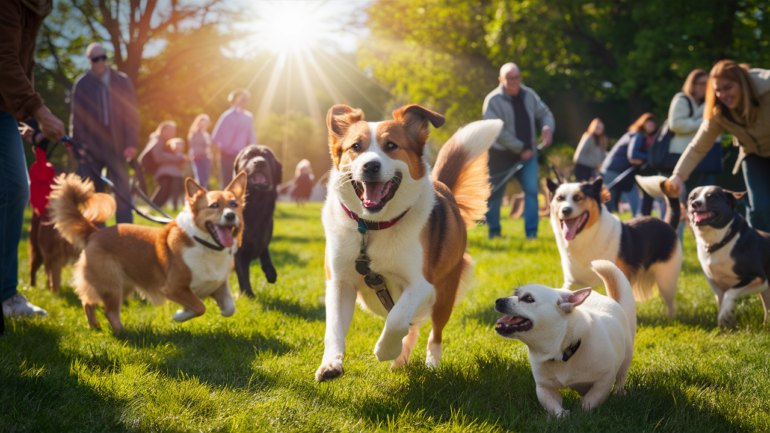Bringing a new dog into your home is an exciting and rewarding experience, but it comes with its fair share of challenges. One of the most crucial tasks for any pet owner is socializing their new furry friend. Done correctly, it can lead to a happy, well-adjusted dog. However, making mistakes during this process can result in long-term behavioral issues. In this article, we’ll delve into the essential do’s and don’ts of dog socialization, offering expert advice to help you navigate this important aspect of pet ownership. Get ready to transform your new companion into a social superstar!
Table of Contents
Understanding Dog Socialization
Socialization involves exposing your dog to various environments, people, animals, and experiences to help them develop into a well-behaved and adaptable pet.
The prime window for socializing puppies is between 3 and 14 weeks of age. During this time, they are more receptive to new experiences and less likely to develop fear-based behaviors.
While it’s easier to socialize puppies, older dogs can also learn new social skills. Patience and positive reinforcement are key when working with adult dogs.
The Do’s of Dog Socialization
- Start Early: Begin socialization during the critical period for puppies, but remember it’s never too late for older dogs.
- Expose Gradually: Introduce your dog to new environments, people, and animals slowly. Gradual exposure helps prevent overwhelming them.
- Use Positive Reinforcement: Reward good behavior with treats and praise. Positive reinforcement encourages your dog to associate new experiences with positive outcomes.
- Stay Calm and Patient: Your attitude influences your dog’s behavior. Stay calm and patient, providing reassurance when needed.
- Schedule Playdates: Arrange regular interactions with other dogs. Playdates help your dog learn to interact appropriately with their peers.
- Enroll in a Training Class: Professional guidance can be invaluable. Training classes offer structured socialization opportunities and expert advice.
The Don’ts of Dog Socialization
- Don’t Rush the Process: Avoid overwhelming your dog with too much too soon. Socialization is a gradual process.
- Avoid Negative Experiences: Steer clear of situations that might scare or stress your dog. Negative experiences can set back your socialization efforts.
- Don’t Force Interactions: Allow your dog to approach new situations at their own pace. Forced interactions can lead to fear and aggression.
- Avoid Inconsistent Training: Be consistent with commands and routines. Inconsistency can confuse your dog and hinder their progress.
- Don’t Ignore Body Language: Learn to read and respect your dog’s signals. Ignoring signs of stress or fear can lead to negative experiences.
Common Challenges and How to Overcome Them
- Fear and Anxiety in New Situations: If your dog shows signs of fear, slowly desensitize them to the trigger and use positive reinforcement to build their confidence.
- Aggression Towards Other Dogs or People: Identify the cause of aggression and seek professional help if needed. Socialization should always be positive and controlled.
- Solutions and Strategies: Employ gradual exposure, positive reinforcement, and professional guidance to overcome these challenges effectively.
Benefits of Successful Socialization
- Improved Behavior and Obedience: Well-socialized dogs are generally better behaved and more obedient.
- Enhanced Confidence and Reduced Fear: Proper socialization boosts your dog’s confidence and reduces fear-based behaviors.
- Stronger Bond Between You and Your Dog: Positive socialization experiences strengthen the bond between you and your dog.
- Better Adaptability to New Environments and Situations: A well-socialized dog adapts more easily to new environments and situations, making life more enjoyable for both of you.
Conclusion
Socializing your new dog is a vital part of ensuring they grow into a well-adjusted, happy companion. By following the do’s and don’ts outlined in this article, you can guide your dog through this process with confidence. Remember to be patient and consistent, and soon you’ll see the benefits of a well-socialized dog in every aspect of your life together.





